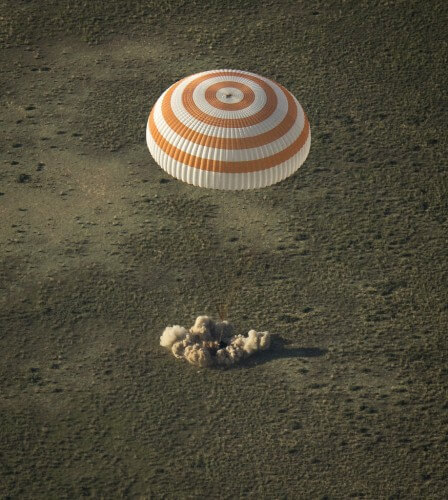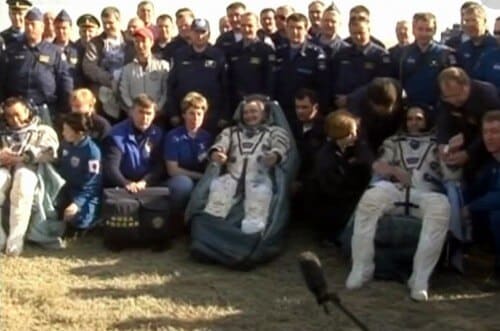Together with them, samples of the bacterial populations on the astronauts' skin and in the air of the station were returned to Earth, for a study designed to examine the effect of being in space on the biotic environment

The 39-member crew of the International Space Station returned to Earth on a doomsday after 188 days in space, orbiting the Earth more than 3,000 times since launching to the International Space Station in November.
The SOYUZ-11M spacecraft returned to Earth the 39th crew commander Koichi Wakata from the Japanese space agency, Soyuz commander Michael Tyurin from the Russian space agency Roskamos, and Rick from NASA. The three landed at 04:58 Israel time. Russian helicopters flew the Russian troops and NASA personnel to the landing site a little later in order to help the returnees and conduct initial medical examinations.
The landing marks the end of the 39th crew cycle and the beginning of the 40th crew under the command of astronaut Steve Swanson. Wakata, the first commander of the station transferred to him during a ceremony that took place on Monday this week.

They returned with them to Earth samples from microbiome research. The biological studies designed to examine the effect of space travel on the immune system and the human microbiome - bacteria living inside and on the human body at any given moment. Samples from the bodies of the team members and from the air of the station were taken regularly and they will be used to monitor the changes in the immune system and microbiome. The results of this research will add to the research on the health effects on people living and working in extreme environments on Earth, and will help in the early detection of epidemics, and to the study of the function of the metabolic system and dysfunction of the immune system.

One response
Poor people
They must have left a lot of bone mass and muscle mass behind..